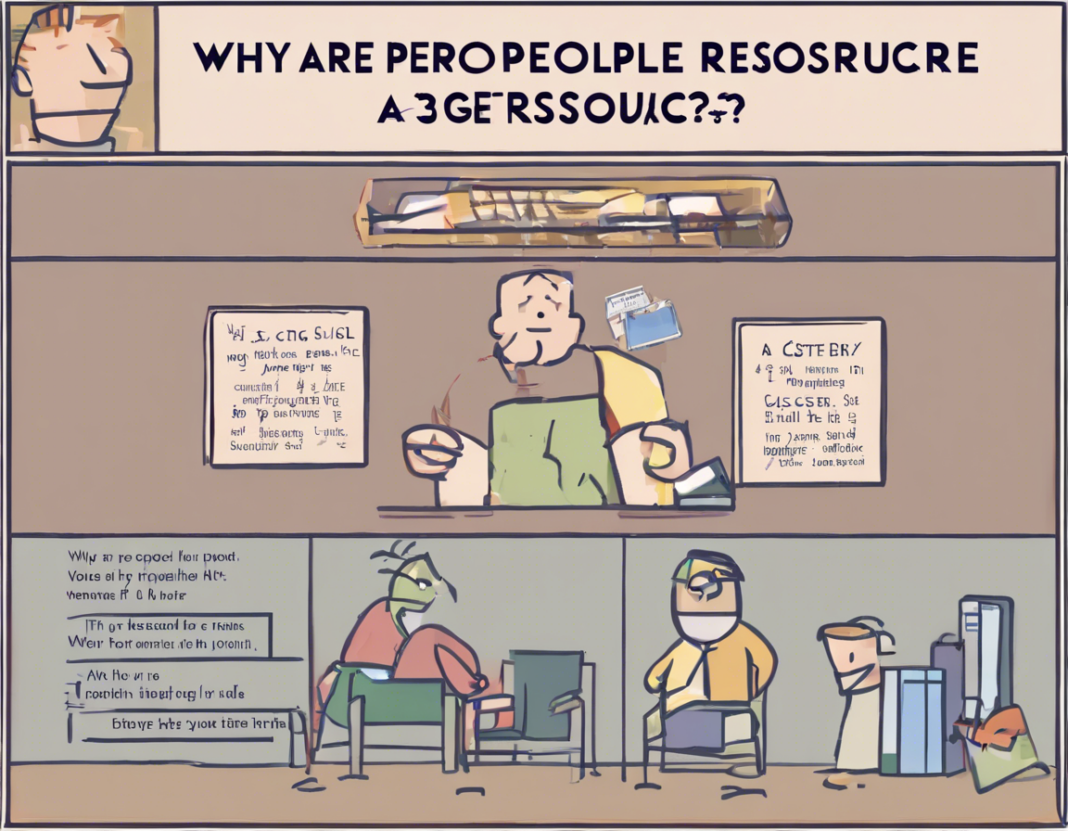In any organization, people are the most valuable resource. Human resources are crucial for the success and growth of businesses, as they bring unique skills, knowledge, and expertise to the table. This comprehensive article will delve into the reasons why people are a valuable resource in the workplace, and how organizations can harness this resource effectively.
The Importance of People in Organizations
1. Skills and Expertise
- Diverse Skill Sets: Every individual brings a unique set of skills and expertise to the workplace. Whether it’s technical proficiency, creativity, problem-solving abilities, or leadership skills, each employee contributes in their own way.
- Specialized Knowledge: Employees often have specialized knowledge that is crucial for the success of certain projects or tasks. This knowledge adds value to the organization and can give it a competitive edge in the market.
2. Innovation and Creativity
- Thinking Outside the Box: People have the ability to think creatively and come up with innovative solutions to problems. Their fresh perspectives can lead to new ideas and approaches that drive the organization forward.
- Adaptability: Employees can adapt to changing market conditions, technological advancements, and customer preferences. Their ability to embrace change and innovate is invaluable for organizational growth.
3. Relationship Building
- Internal Collaboration: Building relationships within the organization is key to fostering teamwork and collaboration. Strong internal relationships lead to better communication, increased productivity, and a positive work culture.
- External Networking: Employees also play a crucial role in building relationships with external stakeholders such as clients, partners, and suppliers. These relationships are essential for business development and growth.
4. Employee Engagement
- Motivation and Morale: Engaged employees are more motivated, productive, and committed to their work. They are willing to go the extra mile to achieve organizational goals and contribute to the company’s success.
- Retention: Investing in employee engagement can help retain top talent and reduce turnover rates. Retaining skilled employees is cost-effective and ensures continuity in projects and operations.
Nurturing Your Most Valuable Resource
1. Training and Development
- Providing training and development opportunities for employees is crucial for enhancing their skills and knowledge. This can include technical training, leadership development programs, and soft skills workshops.
- Continuous Learning: Encouraging a culture of continuous learning helps employees stay updated with industry trends and advancements. This not only benefits the individual but also adds value to the organization.
2. Recognition and Rewards
- Recognizing and rewarding employees for their contributions boosts morale and motivation. This can be in the form of bonuses, promotions, praise, or other incentives that acknowledge their hard work and dedication.
- Feedback: Providing regular feedback to employees helps them understand their strengths and areas for improvement. Constructive feedback fosters growth and development, leading to better performance.
3. Work-Life Balance
- Striking a balance between work and personal life is essential for employee well-being. Organizations that promote work-life balance create a positive work environment, reduce stress, and increase job satisfaction among employees.
- Flexibility: Offering flexible work arrangements such as remote work options, flexible hours, or compressed workweeks allows employees to manage their personal commitments while fulfilling their work responsibilities.
4. Communication and Transparency
- Open and transparent communication is key to building trust and fostering a positive work culture. Employees should feel comfortable sharing their ideas, concerns, and feedback with the management.
- Inclusive Decision-Making: Involving employees in decision-making processes empowers them and makes them feel valued. Seeking their input on key decisions can lead to innovative solutions and greater commitment to organizational goals.
Frequently Asked Questions (FAQs)
1. Why are people considered a valuable resource in the workplace?
People are considered a valuable resource in the workplace due to their diverse skills, expertise, creativity, and ability to build relationships. They drive innovation, contribute to organizational success, and play a crucial role in business growth.
2. How can organizations nurture their most valuable resource?
Organizations can nurture their most valuable resource, their employees, by providing training and development opportunities, recognizing and rewarding contributions, promoting work-life balance, fostering open communication, and involving employees in decision-making processes.
3. Why is employee engagement important for businesses?
Employee engagement is important for businesses as it leads to higher motivation, productivity, and retention rates. Engaged employees are committed to their work, contribute to organizational success, and create a positive work culture.
4. What are the benefits of fostering a culture of continuous learning?
Fostering a culture of continuous learning benefits both employees and organizations. It helps employees stay updated with industry trends, enhances their skills and knowledge, boosts creativity and innovation, and adds value to the organization.
5. How can organizations promote work-life balance among employees?
Organizations can promote work-life balance among employees by offering flexible work arrangements, encouraging time off, providing wellness programs, promoting a supportive work culture, and recognizing the importance of employee well-being.
In conclusion, people are indeed a valuable resource in any organization. By recognizing the importance of human resources, nurturing employee growth and well-being, and fostering a culture that values and empowers its people, businesses can unlock the full potential of their workforce and achieve sustainable success.

